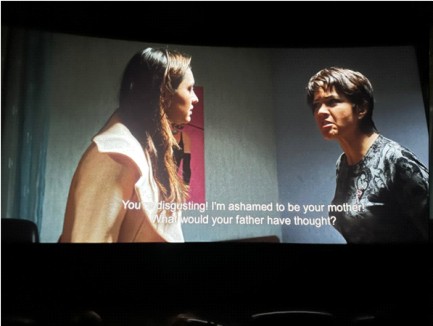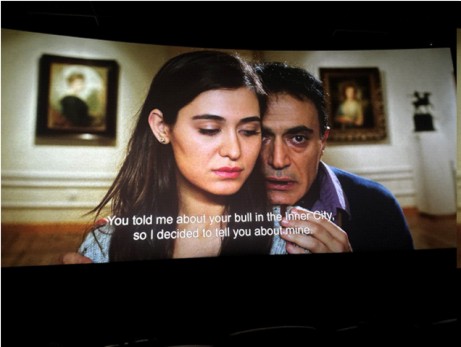
The silver screen is often a canvas upon which the intricacies of human emotion and societal challenges are painted with bold strokes. Such is the case with "Icheri Sheher," the psychological drama directed by Ilgar Safat.
 First unveiled to audiences in 2016, "Icheri Sheher" transports viewers into the lives of its characters, notably Arzu, a young girl navigating the expectations of her society and her own burgeoning desires. Set against the backdrop of ancient Baku quarter of Icheri Sheher, the film unravels a tale of forbidden love and societal scrutiny.
First unveiled to audiences in 2016, "Icheri Sheher" transports viewers into the lives of its characters, notably Arzu, a young girl navigating the expectations of her society and her own burgeoning desires. Set against the backdrop of ancient Baku quarter of Icheri Sheher, the film unravels a tale of forbidden love and societal scrutiny.
As the film reappeared on the screen for re-screening a couple of days ago, it brought with it a resurgence of discourse, led by a thought-provoking discussion moderated by esteemed film critic Sevda Sultanova.
At the heart of "Icheri Sheher" lies a poignant narrative, one that delves into the scars left by war, the delicate dance of relationships, and the profound bond between mother and daughter. The film's exploration of these themes resonates deeply, sparking conversations that transcend the confines of the silver screen.
Central to the dialogue was the relationship dynamic between the screenwriter and director, often a source of contention in the filmmaking process. Yet, in the case of "Icheri Sheher," director Ilgar Safat shed light on a harmonious collaboration, where every nuance was meticulously discussed and resolved. This unity of vision permeated the film, enriching its narrative fabric.
 Mehriban Zaki, who portrayed a pivotal role in the film as the mother surgeon, offered insights into the challenges she faced in embodying her character. Zaki's dedication to her craft shone through as she recounted the transformation process, from conceptualization to execution. Her willingness to immerse herself fully in the role, even undergoing physical changes like cutting her hair, underscored the depth of her commitment to her craft.
Mehriban Zaki, who portrayed a pivotal role in the film as the mother surgeon, offered insights into the challenges she faced in embodying her character. Zaki's dedication to her craft shone through as she recounted the transformation process, from conceptualization to execution. Her willingness to immerse herself fully in the role, even undergoing physical changes like cutting her hair, underscored the depth of her commitment to her craft.
However, the discussion also ventured into the realm of intergenerational dynamics within the acting realm. Zaki highlighted the importance of seasoned actors supporting and uplifting their younger counterparts, rather than succumbing to hierarchical dynamics. This reflection resonates beyond the confines of the film industry, serving as a poignant reminder of the power of mentorship and collaboration.
The discourse also touched upon the linguistic challenges faced by some members of the cast, notably Tahmina Rafaella. While Rafaella's proficiency in English posed certain obstacles, her steadfast dedication to authenticity prevailed, as she declined offers of dubbing in favor of preserving the integrity of her performance. Zaki's commendation of Rafaella's decision underscores the importance of genuine expression in cinematic storytelling.
As the lights dimmed and the film unfolded once more before a captivated audience, the layers of "Icheri Sheher" unfurled with renewed poignancy. From the bustling streets of Baku to the tranquil landscapes of Zagatala, the essence of Azerbaijan's cultural tapestry was intricately woven into the fabric of the narrative.
"Icheri Sheher" stands as a testament to the power of cinema to illuminate the human experience in all its complexity. Through its nuanced portrayal of trauma, relationships, and the bonds of family, it transcends the confines of genre to resonate on a deeply human level. As the credits rolled, the echoes of its narrative lingered, inviting viewers to contemplate the myriad shades of existence that define our shared humanity.













Leave a review